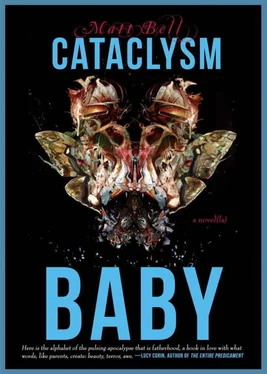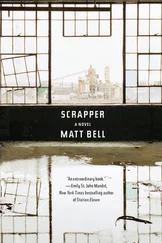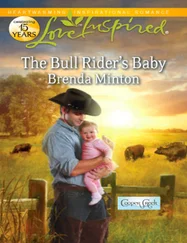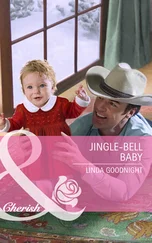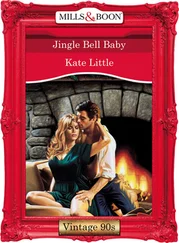Without our children, without their wool-covered skins so easily shaved, we may be cold, but we will not be hungry.
I am not the richest man in the village, nor the tallest nor the strongest nor the smartest, but I am a married man with my own farm, and so in the meeting-hall my voice is the equal of any other. Once everyone has spoken, I stand again and say what must be said next, what has always been called out whenever wild weather waits on the horizon, whenever our children have warned of some dust-storm or sod-twister threatening our homes and our fields.
What I say is this: It is not all of our children who have to go.
One will be enough, I say.
I say, One has always been enough before, and then my neighbors clamor to their feet, clapping their hands and stomping the wooden floorboards in assent, praising me for my bravery.
This praise, I have seen it given to others but have never received it, and so I beam as I organize the writing of our children’s names on slips of paper, then the mixing of the slips into my hat.
All that’s left is for someone to pick a name, knowing that for the next year he’ll be the most reviled person in town, hated for singling out someone’s son or daughter for what must be done to save the rest.
When no one steps forward, I volunteer myself, because my wife and I only have one child, and out of all the other possibilities what is the chance of her name being the one I choose?
And then reaching into the hat.
And then pulling one slip out.
And then reading my daughter’s name, first to myself, then slowly to the others assembled, who again chant my name, applaud my ability to save their families.
While my wife wails, I go with the other men to lift my daughter over the fence-line and into the town square, the open butcher-block of this shared abattoir. I stroke her head, her long ears. With my nose to her muzzle, I tell her I love her, that her mother loves her, that what happens next is not her fault.
I say, You’re just a little girl—all child-fur and finger-hooves—and so how could it be?
Even though this is her eighth season, still she bawls when we shear her, and even after, when she is naked of wool, folded and trembling in my arms. By dusk-light I hold her quiet so each husband and wife can lay a hand on her forehead, so all that we have done wrong—our petty crimes, our coveting and untruths, our backward parenting, inadequate for these new children— all can be displaced upon my daughter’s back.
As I walk her out of the village with my wife and our neighbors trailing behind, then I try not to look at the empty sky, at the lack of storm our children’s crying prophesied. At the lack of obvious reason for what we are about to do.
I try not to think about how we haven’t had a plain-storm in years.
Not since I was a boy, maybe.
Thanks to this ritual, I tell myself. Thanks to these sacrifices.
Past the far limit of our fences, at the crossroads between our village and the wilderness, there I set down my daughter.
I step back, and from the distance between us I take a stone.
While she quivers, cold on skinny legs, I choose another.
It is enough to simply drive her off, so to the others I say, I do not wish to see my daughter hurt—but as all around me the rocks fly, what hurt there is, what whimper in her throat, what storm in her eyes!
And in return her herd sounds from beyond the fences, adding their voices to her crying, her begging caught beneath our hail of scape-stones that must continue until she is gone away. The other children bang their bodies against the slats, bleat with their mouths so different from ours, enough to distract us, to give us pause.
To give us pause, but not to make us stop.
My siren-daughters, my sweet-singing beauties: Whose songs pierced even the thickest of our soundproofed buildings, even the home where once they lived inside, when they were still part of my fractured family, still children under my care. Who, long before the floods began, once lined up beside their mother upon her piano bench, each daughter differing only in age and size, otherwise blessed with the same white-blonde hair, the same eyes so green they glittered even after we extinguished the lamp-light.
While their mother pressed each key in turn, these three daughters hummed along, matching their voices to the piano’s percussion, to the tones that escaped its upright body. One by one they captured its voice, contained it in their chests, so that soon we heard the piano even when no one was playing, its notes coming from our white-fenced yard, from their playroom, from the tight porcelain confines of their shared bath times.
It wasn’t until the rains started that the oldest learned to mimic her mother’s mouth-noises, and so it was she who first licked her lips at the dinner table and then repeated every sonorous syllable of my wife’s speech, the description of her day at the dykes, binding dams with all the other mothers recently pressed into service, no longer allowed to stay home with their children. Soon the younger two could do as well as the oldest, all of them speaking in their mother’s many voices, matching the pitch and timbre that accompanied each shift of mood and mannerism.
How soon after did they learn to throw their own voices, to call out from places they could not possibly be? When did I first hear my wife’s words from every room, calling me to dinner, calling me to work, calling me to bed to make another daughter, so that the song might go on, might swell?
What choir of sisters my daughters wanted, and what chorus they were denied, for my wife had already shut her womb to me and to the wet world around us, saying that if we could not ensure the future of the children we already had, then what point was there in bringing more into our flooding home?
Still our daughters pestered. Still they mimicked. Still I fell for their many tricks, because I too wanted the next child they wished my wife to make.
With their changeable voices, they lured me out of the study, out of the house and into the drowned neighborhood left behind by the breeching of the levees, those imperfect barriers giving way to the rush of rainwater, to the floating freeze of recent hail. And if I never caught my daughters, I at least found what they wanted to show me, the new landmarks of our remade neighborhood: First, a dog floating short-leashed and bloated, then the submerged beauty of our once dry library. Other things they’d wanted, and by our failing world were denied.
What family meeting we had then, loud of volume, each daughter throwing out her mother’s speech and then mine too, until all our parentage was lost to their same-enunciated disavowals, on and on until my lungs hung empty against my sorrowed heart, until I could no longer give voice to the word no, to the word stop, to the words no please stop.
And what then? What could we do to these daughters after we were forced to move onto the second floor, those cramped rooms stuck atop our submerged stairs? Or even later, when our neighbors rowed over to bring us news about the first of the drowned, victims rushing out into the water to save some loved one screaming for help but finding only undertows thick with brambles and water snakes?
To pretend it wasn’t happening. To go to rooftop funerals and say nothing. To stand with my hand in my wife’s or some daughter’s, while widows and widowers lamented that they’d never hear their loved ones again, and then to say, Well, perhaps not, but perhaps yes too.
And then my wife being lured out. My wife who should have known better being trapped in water over her head, treading for hours in the river that used to be our tree-lined street.
Читать дальше
